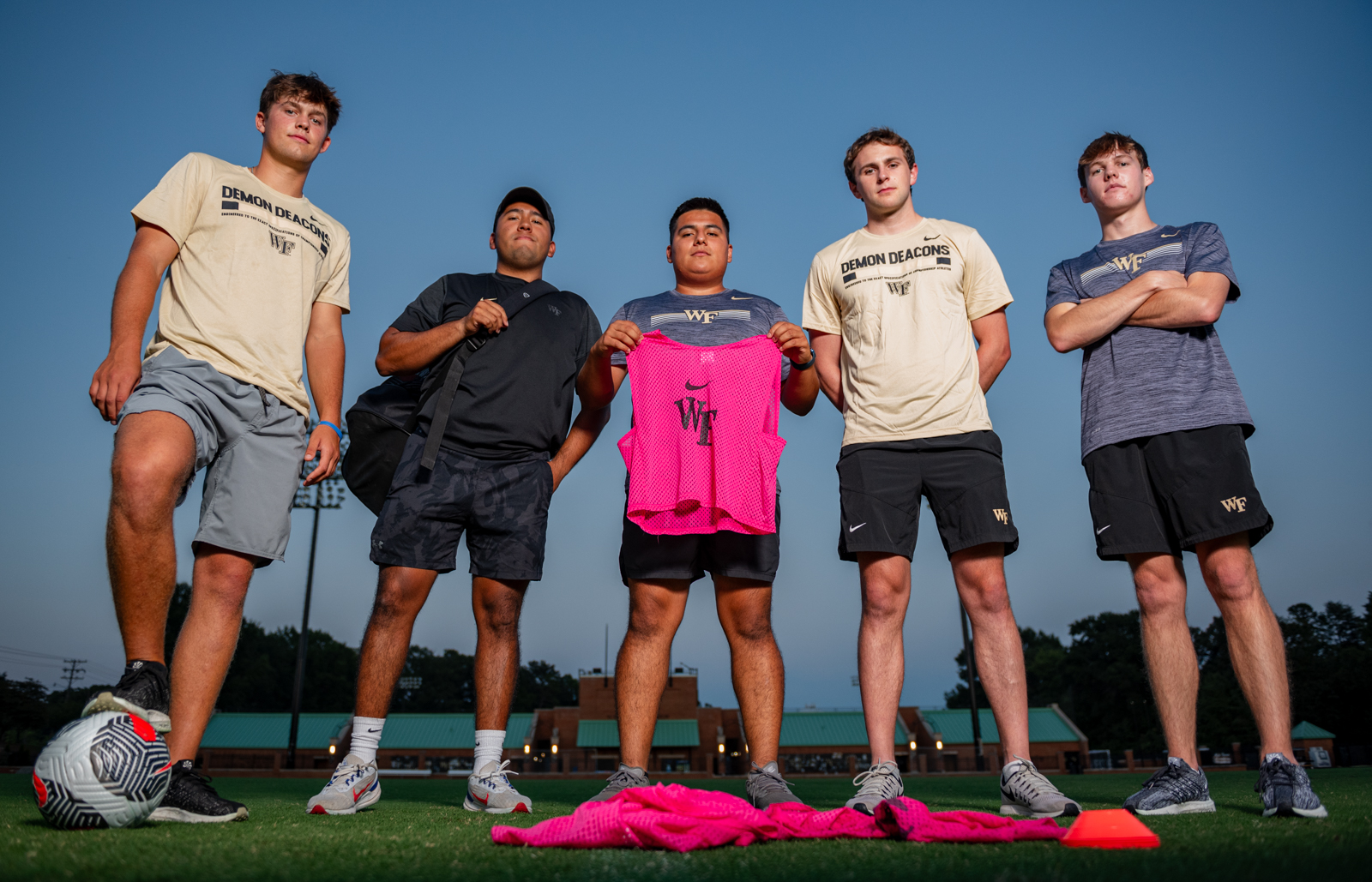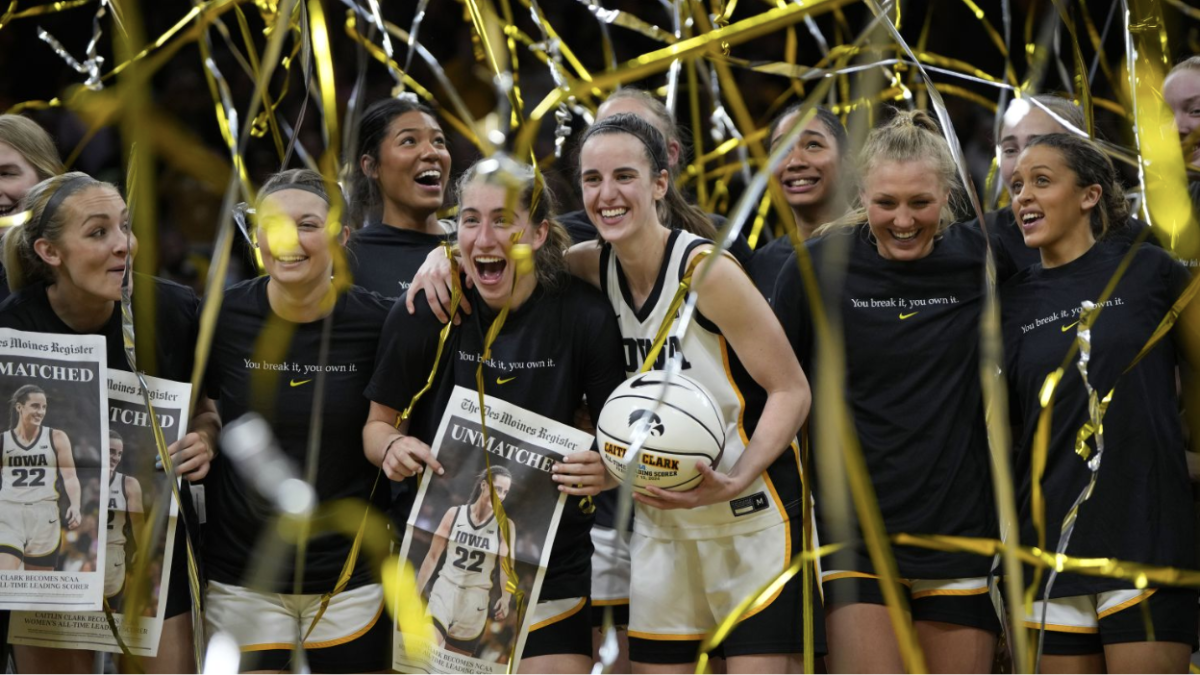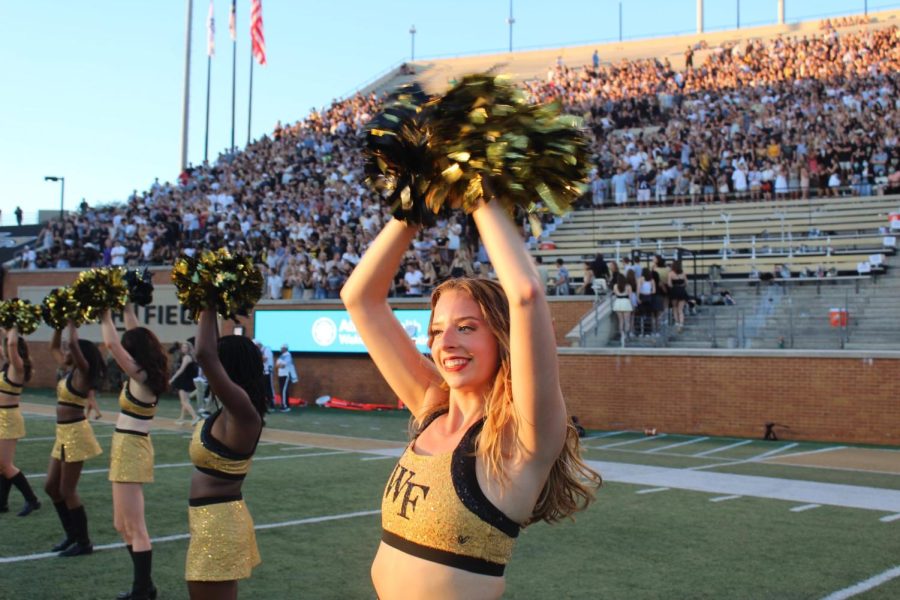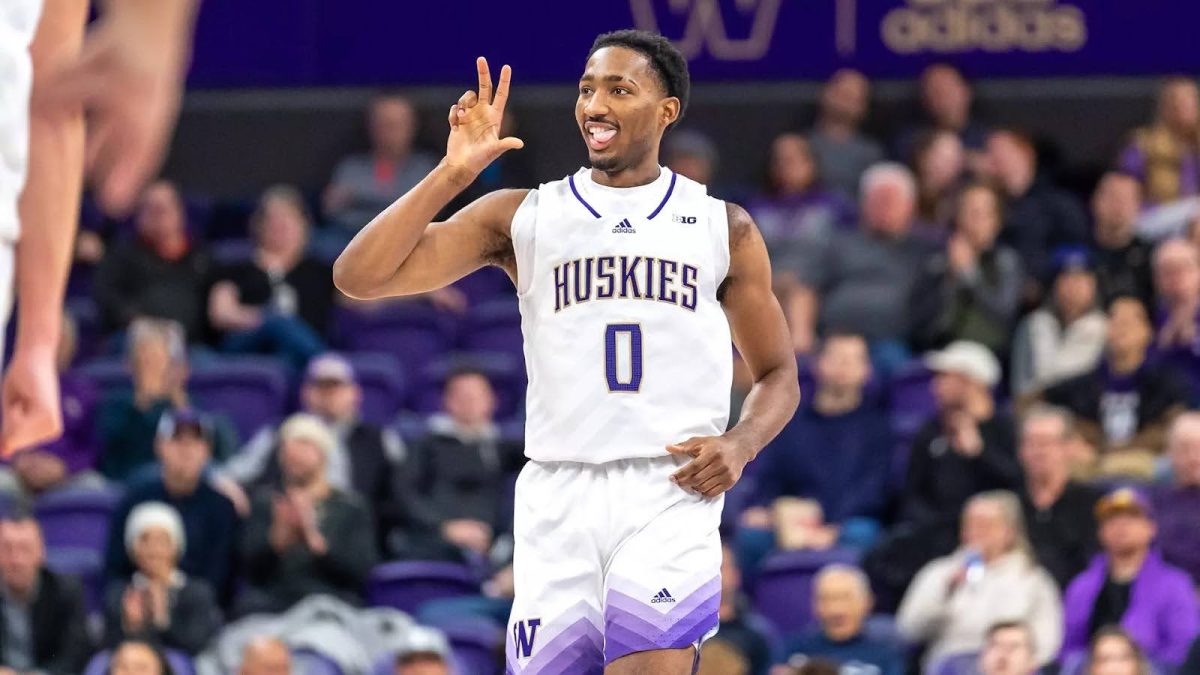For junior Tyler Fausnaught, many of the student managers’ not-so-glamorous responsibilities, such as treating grass stains on players’ jerseys, are what make them vital to collegiate athletic teams.
“It’s not the coolest job to have,” Fausnaught said. “You’re definitely doing the dirty work and working behind the scenes. But if the players or the coaches had to do the work that we do, they wouldn’t have enough time to focus on the game and the job they are trying to do.”
Fausnaught is one of the Wake Forest men’s soccer team’s five student managers, alongside senior Manny Guevara, senior Ethan Humphrey, junior Nico Machado and sophomore Tyler Thompson. Each week, they work behind the scenes to ensure each practice and game runs smoothly. Their responsibilities include setting up for practice, transitioning between drills, filming games, sorting gear and occasionally traveling with the team.
In a normal week, the managers work in teams of two to run practice. They arrive at the field 45 minutes before the players to set up drills and pump soccer balls. During home games, four to five managers prepare warm-ups and set up cameras two hours before the game begins. After recording the game, the managers account for all the gear, treat the players’ jerseys and wash the players’ socks. According to Humphrey, he spends an average of 8-10 hours per week working with the team.
Thompson expressed that the most significant challenge of his job is ensuring that each drill is set up and the equipment works properly during every practice and game.
“There is some pressure because you need everything to go right,” Thompson said. “In practice, you need the clock to be working so that [the team] can time the drills properly. You need the drills to be set up correctly, or it will go awry. In games, the filming is super important, so [the players] can watch it back. I think that there is just a lot of pressure, and that would be the main challenge.”
In addition to these responsibilities, Guevara’s role as head manager adds an administrative element to his job. He explained that alongside scheduling managers to practices and games, he communicates with the coaches regarding uniforms and equipment.
“I have to work a lot with other people’s schedules,” Guevara said. “Every manager has a different major. Some majors require early morning classes and others require late afternoon classes, so you have to work around that.”
Despite these challenges, Machado and Humphrey agreed that working with each other and the team is rewarding.
“Throughout my life up until the end of high school, I played soccer,” Humphrey said. “I’ve always had an interest in it, and being able to work with some of the best college athletes in soccer in the country is pretty cool.”
He continued: “I’m constantly learning from players and coaches just by watching. Then, I get to talk to all of them about professional soccer, while none of my other friends at Wake Forest follow professional soccer. It’s just a whole group of 30 people that I can geek out about soccer with.”
Guevara, who has worked consistently for the team since his sophomore year, explained that his friendships with the players and other managers have grown over time.
“As time has gone by, I’ve gotten closer to the players of my age who are currently seniors or juniors,” Guevara said. “I’ve been able to call some of them my friends and hang out after practice or after any game, as well. With the managers, I’m pretty close to most of them. Some of them are my roommates, so it’s a great experience hanging out with them after practices and games and also being able to bond with them at work.”
While each manager said that they do not think many Wake Forest students know about their work with the team, they each expressed that they feel recognized by the players and coaches.
“I mean, nobody really thinks about the managers,” Machado said. “When it comes to the coaches and players, they’re very grateful…the players are always thanking us, and it’s really nice to hear from them. They’re always saying thank you and helping us when they can.”
Hosei Kijima, one of the team captains, expressed that the student managers are assets to the team.
“Our managers are such a big help to daily operations,” Kijima said. “As a player, it is a great relief to have our training gear, jerseys and socks and actual practices being set up by them. They make Wake Forest a very professional program with everything set up so we can perform at our best.”
Kijima also noted that the managers are a positive presence off the field.
“Apart from the logistical side, they are great people to be around as they are always working hard, smiling and enjoying every moment that they have as a student and manager,” Kijima said. “I will always appreciate them.”
















Liz Lipson • Sep 11, 2023 at 7:03 pm
Proud of my grandson, Tyler Fausnaught and his tremendous work ethic.